Search results
Projects
Playable City Melbourne
Making the City a Platform for Play
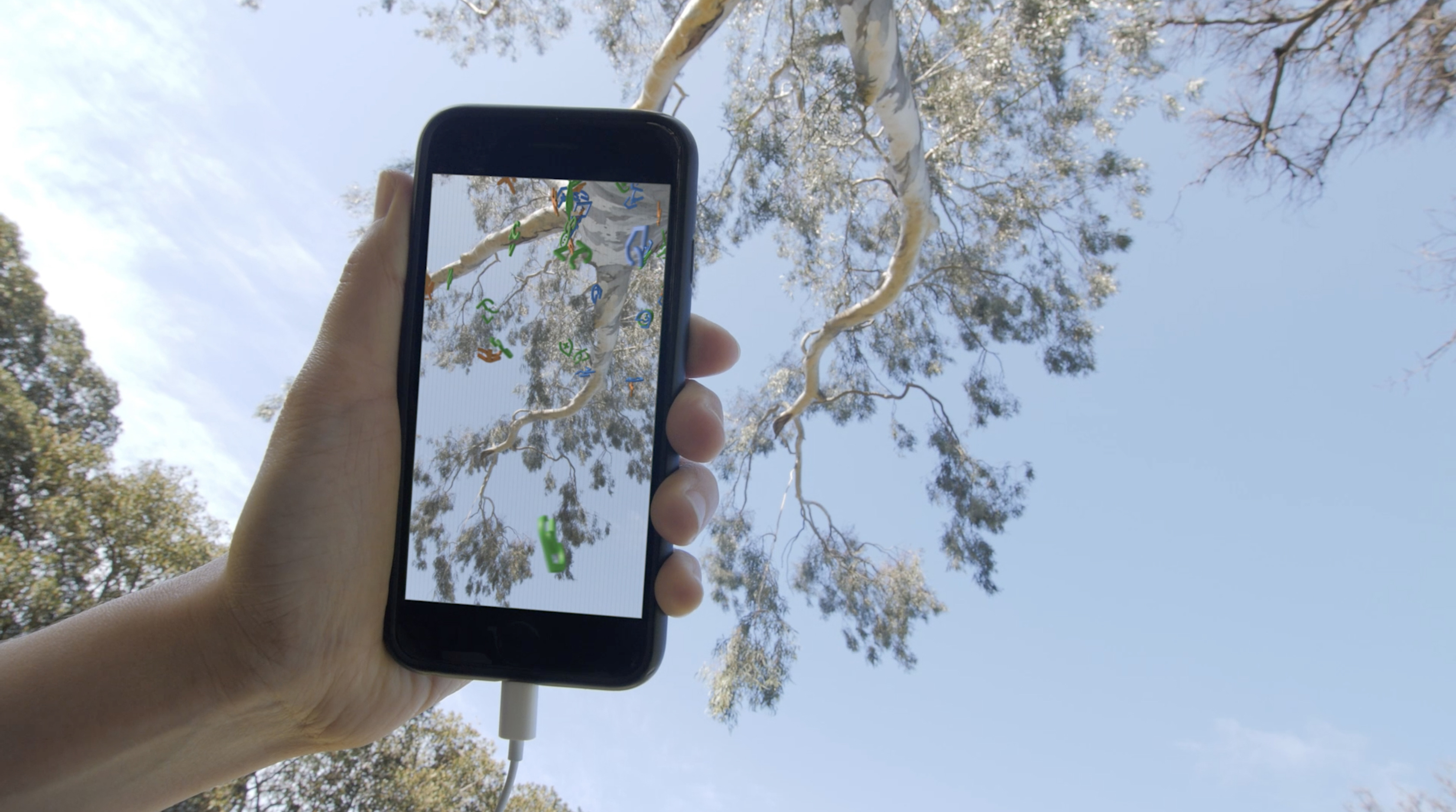
Playable cities connect people and place through creative technologies, making the city a platform for play. Playable City Melbourne is a three-year project bringing together an interdisciplinary urban play community.
During Melbourne International Games Week 2019, Playable City Melbourne is calling for a diverse community of designers, game developers, scientists, writers, architects, artists, producers, performers, players, bureaucrats etc to learn more about urban play and join in the conversation. This conference will explore other ways of being in public space, First Peoples connection to place, and more-than-human infrastructure. Playable City Melbourne talks to the city’s multi-layered civic identity – as a creative city, technological city, a diverse and multicultural city, knowledge city and liveable city that is growing fast.
If you would like to get involved with this project, fill out the form below or reach out to project leaders via the contact info provided alongside each bio.
People
Troy Innocent
VC Research Fellow
School: School of Design
Dr Troy Innocent is an artist, academic, designer, coder, educator, and VC Senior Research Fellow at RMIT University, where his creative practice research explores the city as platform for play through an inventive blend of live art, game design and public art. Over the past ten years he has explored the lived experience of cities through mixed realities; situating his work in Melbourne, Bristol, Barcelona, Istanbul, Ogaki, Sydney and Hong Kong. As Melbourne Knowledge Fellow, Innocent expanded his ‘urban codemaking’ practice for situating play in cities to develop Playable City Melbourne, a three-year project bringing together an interdisciplinary urban play community. He is currently artistic director of 64 Ways of Being, a playable city-wide platform for augmented reality experiences supported by a Creative State Commission.
Games of Being Mobile
First National Survey of Mobile Games in Australia

This project contextualised mobile games as part of broader practices of play, both in the home and extending out into neighbourhoods, urban public spaces and online networks. The Games of Being Mobile project followed nearly sixty households over three years (2013– 2016) in five of Australia’s capital cities: Melbourne, Perth, Adelaide, Sydney and Brisbane. It is the first national survey of mobile games.
The project identified the diverse agencies of mobile media users and players, and the multiple modalities of play. As we face a challenging future, it is our hope that the power of mobile games and playful practices can fuel innovative forms of care, mindful engagement and ethical sociality.
View the report here.
If you would like to get involved with this project, fill out the form below or reach out to project leaders via the contact info provided alongside each bio.
People
Larissa Hjorth
Distinguished Professor and Director, Design and Creative Practice
School: Enabling Capability Platforms
Larissa Hjorth is a digital ethnographer, artist, Distinguished Professor and director of the Design & Creative Practice ECP platform at RMIT University. With Professor Heather Horst, she co-founded the Digital Ethnography Research Centre (DERC). Previously, Hjorth was Deputy Dean, Research & Innovation, in the School of Media & Communication (2013−2016). Hjorth served on the inaugural Australian Research Council (ARC) Engagement & Impact Pilot study assessment panel for humanities and creative practice.
Hjorth studies the socio-cultural dimensions of mobile media and play practices in the Asia-Pacific region with an emphasis on interdisciplinary, collaborative and cross-cultural approaches. She has published a dozen co-authored books, edited over a dozen Handbooks/Companions and has over 40 journal articles.
More recently, Hjorth’s work has become concerned with how we can bring creative, social and design solutions to the growing ageing populations and, in turn, how we might consider scenarios of what it means to die well. She is also studying how our “more-than-human” companions can teach us about new media in everyday life. Hjorth’s last book, Haunting Hands (Oxford Uni Press) looked at how mobile media is being deployed in situations of grief and trauma, her previous book explored how art practice can teach us new acumen into the climate change debate.
Hjorth’s books include Haunting Hands (with Cumiskey 2017), Screen Ecologies (with Pink, Sharp & Williams 2016), Digital Ethnography (Pink et al. 2016) Mobile Media in the Asia-Pacific (2009), Games & Gaming (2010), Online@AsiaPacific (with Arnold 2013), Understanding Social Media (with Hinton 2013), and Gaming in Locative, Social and Mobile Media (with Richardson 2014).
Hugh Davies
Postdoctoral Research Fellow
School: Games
Hugh Davies is an artist, curator and researcher of games and play. His practice explores histories of media devices and cultures of games in the Asia Pacific Region. Awarded a PhD in Art, Design and Architecture from Monash University in 2014, Hugh’s studies in game cultures have been supported with fellowships from Tokyo Art and Space, M+ Museum of Visual Culture and the Hong Kong Design Trust. Hugh is currently a postdoctoral research fellow at RMIT in Melbourne, Australia.
Ingrid Richardson
Professor
School: Media and Communication
Professor Ingrid Richardson has been teaching, supervising and researching in the fields of digital media, mobile media and games for over twenty years. She has a broad interest in the human-technology relation and has published widely on the phenomenology of games and mobile media, digital ethnography and innovative research methods, the relation between technology use and wellbeing, and the cultural effects of urban screens, wearable technologies, virtual and augmented reality, remix culture and web-based content creation and distribution. Ingrid has led or co-led 14 funded research projects, the most recent being an ARC DP [Games of Being Mobile] with Larissa Hjorth. She is contributing co-editor of Studying Mobile Media (Routledge, 2011) and co-author of Gaming in Social, Locative and Mobile Media (Palgrave, 2014), Ambient Play (MIT, 2020), Understanding Games and Game Cultures (Sage, 2020), Exploring Minecraft: Ethnographies of Play and Creativity (Palgrave, forthcoming), and Mobile Media and the Urban Night (Palgrave, forthcoming). Ingrid brings ten years’ experience in university-level HDR management and during this time has actively championed and supported creative methods and practice-led postgraduate research. Over the past five years she has also developed a passion for teaching critical web literacy skills to undergraduate students across all disciplines.
Locating the Mobile
Care-at-a-Distance Through Smartphone Practice
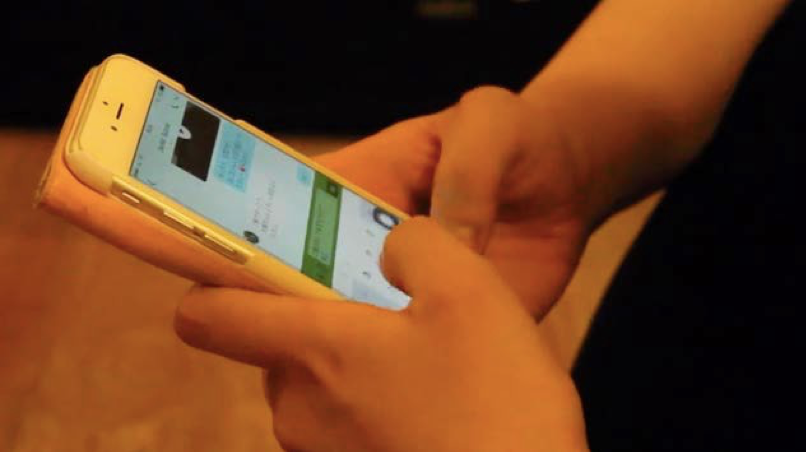
This Australian Research Council Linkage with Intel, Locating the Mobile, followed ethnographically 12 households over three years (2014 – 17) within the three purposefully very distinct locations (Melbourne, Tokyo and Shanghai) to gain a sense of cultural differences and similarities with respect to intergenerational use of locative media.
To understand how locative media fit into the rhythms of everyday life — with its mundane routines and intimacies — the researchers went beyond standard interviewing methods. Instead, they developed ethnographic techniques that enabled them to engage empathetically with people’s intimate experiences in mundane life.
View the report here.
If you would like to get involved with this project, fill out the form below or reach out to project leaders via the contact info provided alongside each bio.
People
Larissa Hjorth
Distinguished Professor and Director, Design and Creative Practice
School: Enabling Capability Platforms
Larissa Hjorth is a digital ethnographer, artist, Distinguished Professor and director of the Design & Creative Practice ECP platform at RMIT University. With Professor Heather Horst, she co-founded the Digital Ethnography Research Centre (DERC). Previously, Hjorth was Deputy Dean, Research & Innovation, in the School of Media & Communication (2013−2016). Hjorth served on the inaugural Australian Research Council (ARC) Engagement & Impact Pilot study assessment panel for humanities and creative practice.
Hjorth studies the socio-cultural dimensions of mobile media and play practices in the Asia-Pacific region with an emphasis on interdisciplinary, collaborative and cross-cultural approaches. She has published a dozen co-authored books, edited over a dozen Handbooks/Companions and has over 40 journal articles.
More recently, Hjorth’s work has become concerned with how we can bring creative, social and design solutions to the growing ageing populations and, in turn, how we might consider scenarios of what it means to die well. She is also studying how our “more-than-human” companions can teach us about new media in everyday life. Hjorth’s last book, Haunting Hands (Oxford Uni Press) looked at how mobile media is being deployed in situations of grief and trauma, her previous book explored how art practice can teach us new acumen into the climate change debate.
Hjorth’s books include Haunting Hands (with Cumiskey 2017), Screen Ecologies (with Pink, Sharp & Williams 2016), Digital Ethnography (Pink et al. 2016) Mobile Media in the Asia-Pacific (2009), Games & Gaming (2010), Online@AsiaPacific (with Arnold 2013), Understanding Social Media (with Hinton 2013), and Gaming in Locative, Social and Mobile Media (with Richardson 2014).
The Hydrating Bungaribee
Rethinking waste water recovery
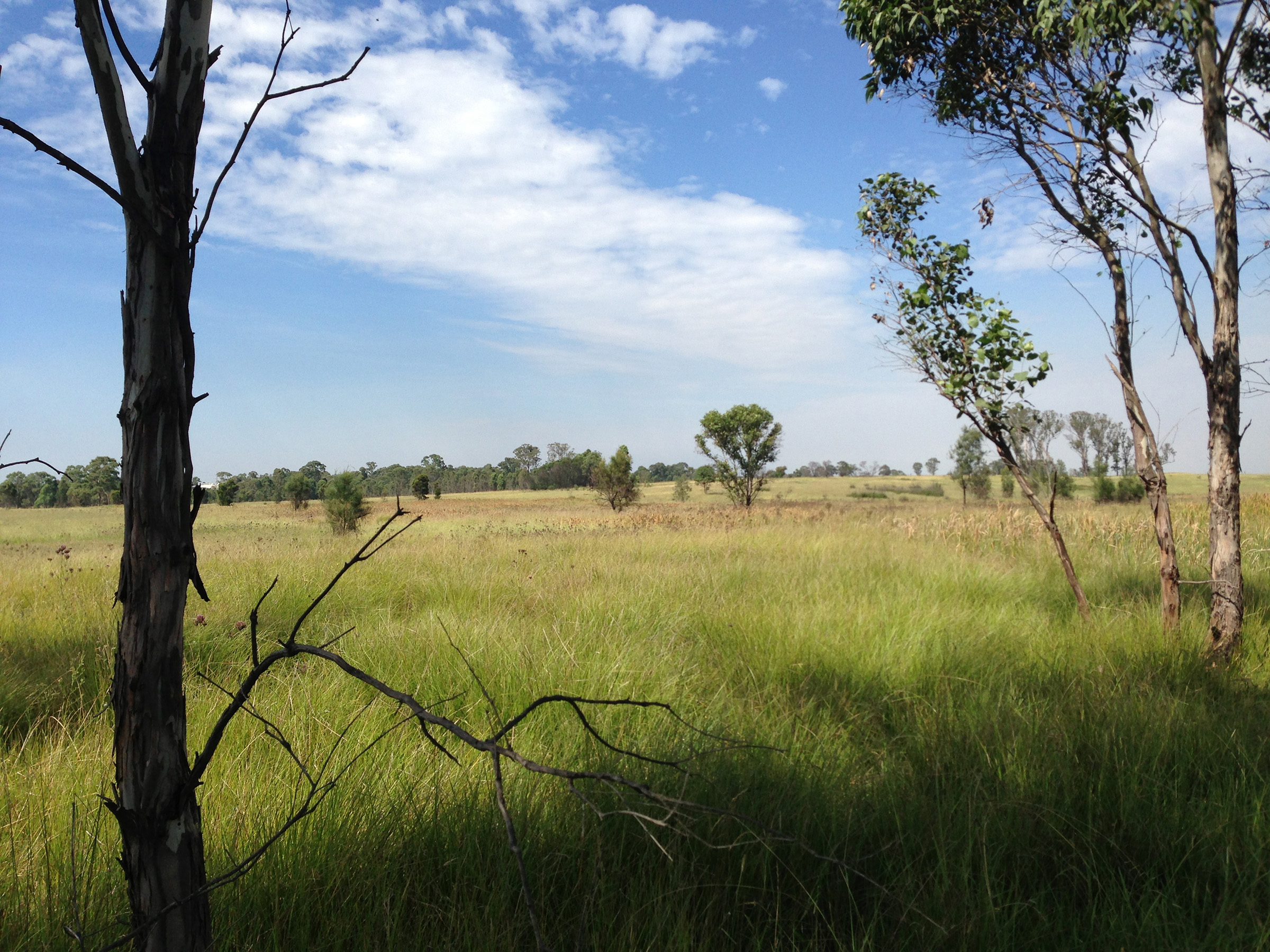
The Hydrating Bungarribee project brought together varied expertise from across different schools to creatively reimagine how public open space can transform waste water to contribute to positive recreational, environmental and social outcomes in the face of increasingly extreme climatic events.
If you would like to get involved with this project, fill out the form below or reach out to project leaders via the contact info provided alongside each bio.
People
Anton James
Professor of Landscape Architecture
School: Architecture and Urban Design
Professor Anton James, who trained as a landscape architect and visual artist, has over a period of 20 years designed projects in Australia, Europe and the USA. He has won numerous awards and competitions, both in Australia and overseas. His work continues to focus on design as a means to explore a site’s spatial, environmental and material tension for their potential to enrich the urban experience.
As a working director of JMD design, Anton’s focus on design and innovation continues to contribute to the quality of the built environment. In 2011 he was the recipient of the Australian Medal for Landscape Architecture for the Paddington Reservoir.
Trades Hall GBV Training Package
Evaluate, Enhance & Embed
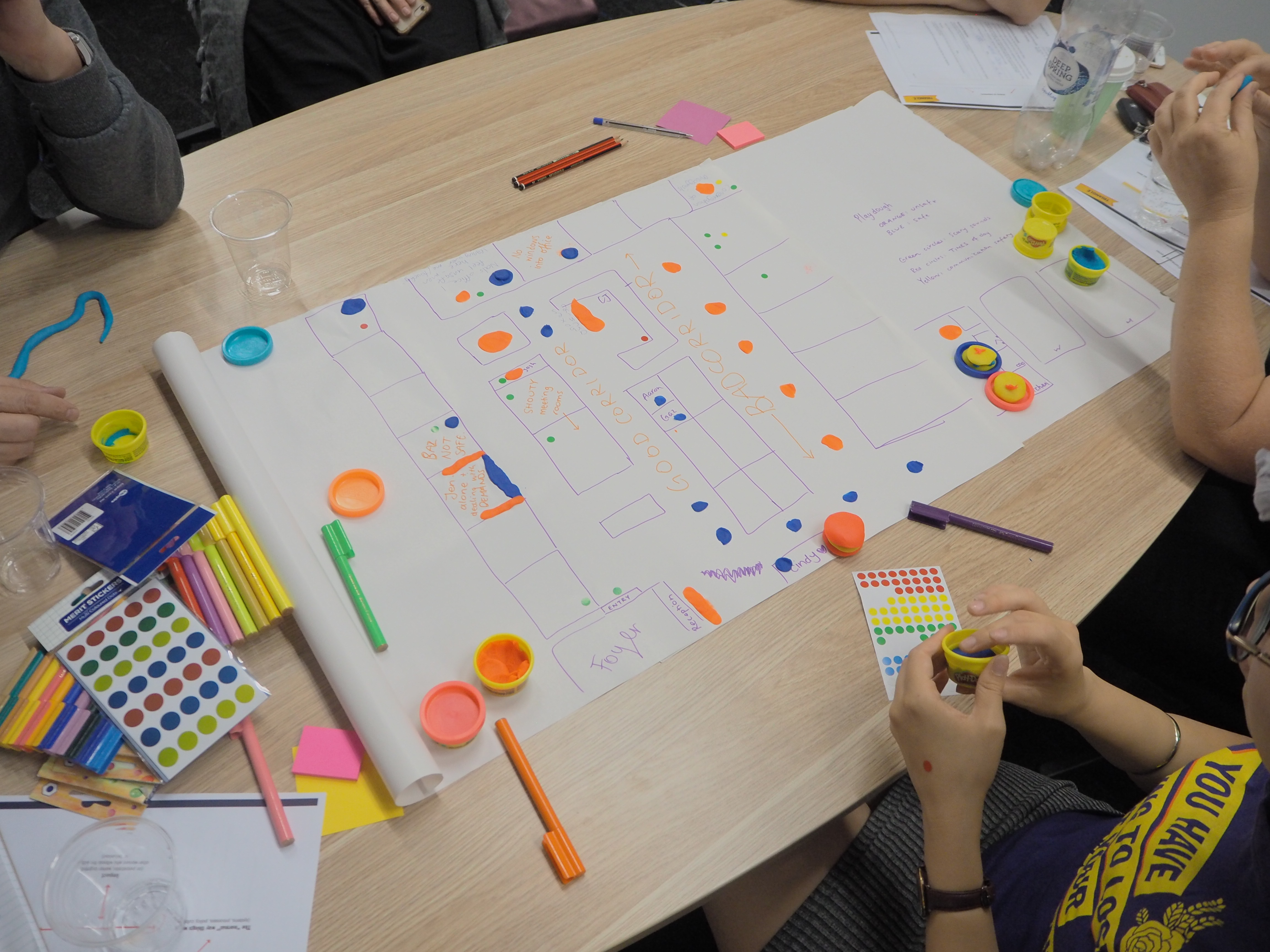
How might we co-design for cultural change for workplaces of the future? How can we co-design with inclusivity at the core? How can we co-create opportunities for social change in workplaces?
This collaboration built on the Victorian Trades Hall Council’s (VTHC) gender-based violence in the workplace training package, designed to advance the rights of people working across Victoria through cultural change towards inclusion, equality, and diversity. The project aim was to have the package evaluated, enhanced and for measurements to be embedded to ensure the aim of the package to change workplace cultures is able to be rolled-out.
To address this aim, the project utilised a series of mixed methods deploying ethnography (interviews and role play scenario case studies), SWOC analysis, multi-sensorial mapping and cultural probes to evaluate, enhance and reflect upon measuring social change.
If you would like to get involved with this project, fill out the form below or reach out to project leaders via the contact info provided alongside each bio.
People
Larissa Hjorth
Distinguished Professor and Director, Design and Creative Practice
School: Enabling Capability Platforms
Larissa Hjorth is a digital ethnographer, artist, Distinguished Professor and director of the Design & Creative Practice ECP platform at RMIT University. With Professor Heather Horst, she co-founded the Digital Ethnography Research Centre (DERC). Previously, Hjorth was Deputy Dean, Research & Innovation, in the School of Media & Communication (2013−2016). Hjorth served on the inaugural Australian Research Council (ARC) Engagement & Impact Pilot study assessment panel for humanities and creative practice.
Hjorth studies the socio-cultural dimensions of mobile media and play practices in the Asia-Pacific region with an emphasis on interdisciplinary, collaborative and cross-cultural approaches. She has published a dozen co-authored books, edited over a dozen Handbooks/Companions and has over 40 journal articles.
More recently, Hjorth’s work has become concerned with how we can bring creative, social and design solutions to the growing ageing populations and, in turn, how we might consider scenarios of what it means to die well. She is also studying how our “more-than-human” companions can teach us about new media in everyday life. Hjorth’s last book, Haunting Hands (Oxford Uni Press) looked at how mobile media is being deployed in situations of grief and trauma, her previous book explored how art practice can teach us new acumen into the climate change debate.
Hjorth’s books include Haunting Hands (with Cumiskey 2017), Screen Ecologies (with Pink, Sharp & Williams 2016), Digital Ethnography (Pink et al. 2016) Mobile Media in the Asia-Pacific (2009), Games & Gaming (2010), Online@AsiaPacific (with Arnold 2013), Understanding Social Media (with Hinton 2013), and Gaming in Locative, Social and Mobile Media (with Richardson 2014).
Jaz Hee-jeong Choi
Vice-Chancellor’s Senior Research Fellow
School: Design and Social Context
Dr Jaz Hee-jeong Choi is a Vice-Chancellor’s Senior Research Fellow at the Digital Ethnography Research Centre at RMIT. Previously, she was a Founding Member and the Director of the QUT Urban Informatics Research Lab, a transdisciplinary research group exploring and designing at the intersection of people, places, and technologies. She also founded the SIGCHI FoodCHI Network.
She is an advocate for transdisciplinary research, carefully balancing creativity and criticality. Her approach to urban sustainability recognises ‘play’ as the core of transformative interactions in cities as complex techno-social networks. She builds on this to explore how various forms of digital and playful experiences are designed and evolve in different cultural contexts. Her current research explores designing with and for care for liveable and equitable urban futures across three inter-related domains: wellbeing and ageing; impactful research methods, and; co-creative urban transformation.
She has collaborated with leading international researchers, published in books and journals across various disciplines, and given invited talks at major international conferences including the inaugural Global Social Economy Forum in 2013 and the opening keynote at the 2010 UNESCO Creative Cities Conference.
Jenny Kennedy
Postdoctoral Research Fellow
School: Design and Social Context
Jenny Kennedy is a Postdoctoral Research Fellow in Media and Communication at RMIT University, Melbourne. Her research interests cover media practices in everyday life, social discourses around technology use and material culture, especially in domestic contexts. She is a core member of the Technology, Communication and Policy Lab in DERC.
She is currently working on projects around digital inclusion, and AI and automation in home environments.
Cold Climate Landscapes and Atmospheres
Examining the effects of global warming on cold climate ecologies
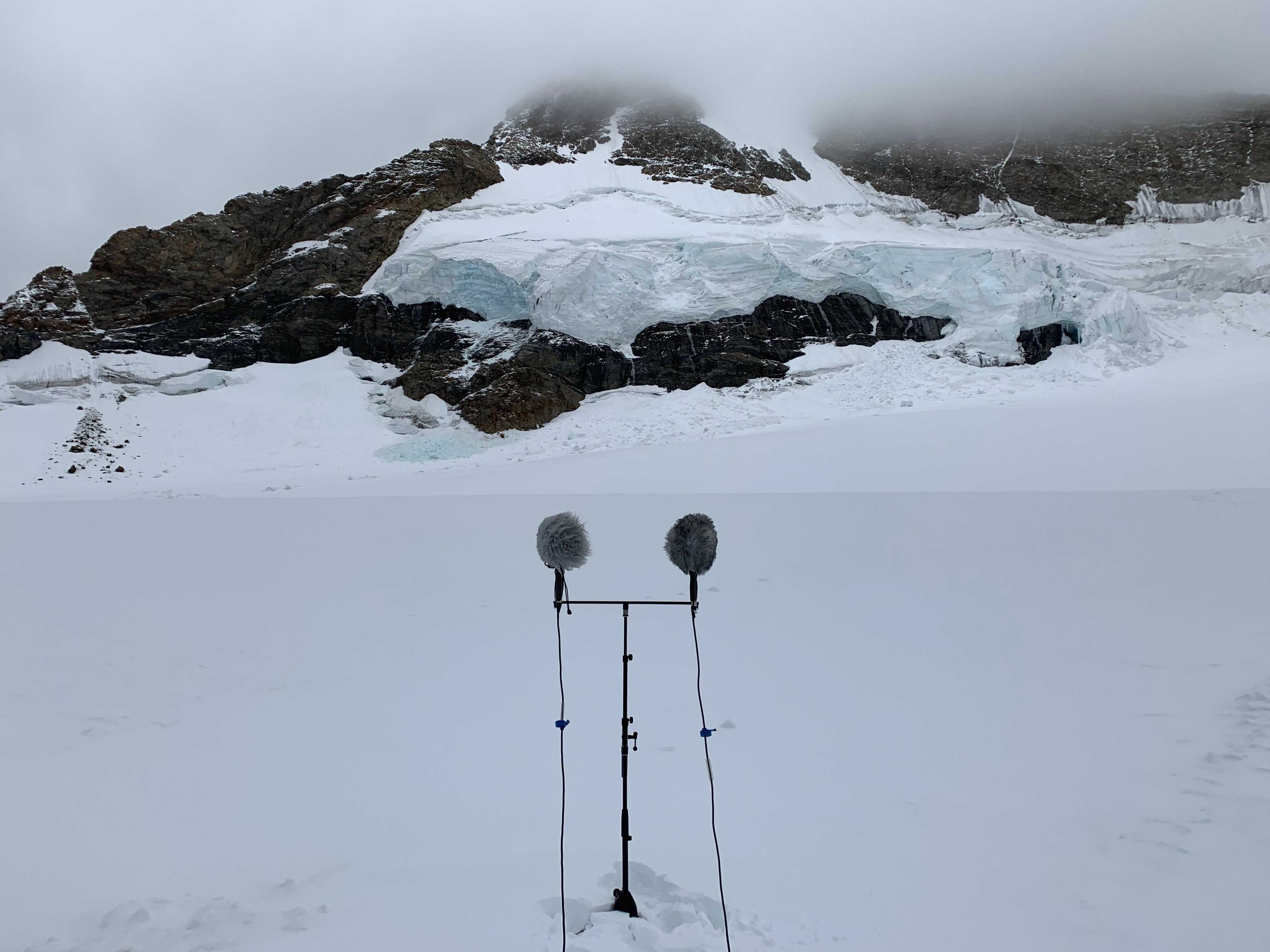
This project explores the impact of extreme climate and weather events on rarefied wilderness environments through the process of sound mapping to reveal the transformations occurring on the margins of our planet, and yet central to the health and wellbeing of everyone. Art is a powerful agent and advocate in how these transformations are perceived and the actions required to mitigate destructive behaviours and their long-term consequences.
“I’m not a scientist but I’m using art to articulate some of these observations and concerns to a much broader audience.”
— Lead researcher, Philip Samartzis in SWI swissinfo.ch, This is what the changing Alps sound like, 20 December 2019.
If you would like to get involved with this project, fill out the form below or reach out to project leaders via the contact info provided alongside each bio.
People
Philip Samartzis
School: School of Art
Philip is an Associate Professor within RMIT School of Art, and leader of the Sound Art and Audio Culture Lab.
Associate Professor Samartzis is a sound artist, scholar and curator with a specific interest in the social and environmental conditions informing remote wilderness regions and their communities. His art practice is based on deep fieldwork where he deploys complex sound recording technology to capture natural, anthropogenic and geophysical forces. The recordings are used within various exhibition, performance and publication outcomes to demonstrate the transformative effects of sound within a fine art context. He is particularly interested in concepts of perception, immersion and embodiment in order to provide audiences with sophisticated encounters of space and place. Philip is the recipient of three Australian Antarctic Division Arts Fellowships (2009, 2015, 2020), which he is using to document the effects of extreme climate and weather events in Eastern Antarctica, Macquarie Island, and the Southern Ocean over a 12-year period.
Design and Social Innovation in Asia-Pacific Network
Capacity building in the Asia-Pacific region

How does design accompany and accelerate economic growth? Economies within the Asia-Pacific region are facing challenges of balancing economic development with social and cultural sustainability.
Design and Social Innovation in Asia-Pacific (DESIAP) is a learning platform, a community of practice and a network for collaboration and ongoing knowledge sharing for various practitioners, researchers, communities, and professionals working in the Design and Social Innovation (D&SI) space in this region. We facilitate rich exchanges on diverse, culturally respectful and contextually specific approaches to real-world problems.
Visit the DESIAP website.
If you would like to get involved with this project, fill out the form below or reach out to project leaders via the contact info provided alongside each bio.
People
Yoko Akama
Associate Professor, Communication Design Cluster
School: Communication Design
+61 3 9925 2805
RMIT staff profile
yoko.akama@rmit.edu.au
Yoko Akama is a design researcher at RMIT University, Australia. She co-leads the Design and Social Innovation in Asia-Pacific network and Design+Ethnography+Futures research program at RMIT.
Her Japanese heritage has embedded a Zen-informed relational practice to carve a ‘tao’ (path) in design and has published extensively on this topic. This practice is shaped by working with regional communities in Australia in strengthening their resilience for disaster preparedness, and with Indigenous Nations enact their sovereignty and self-determination. She is an Adjunct Fellow of a ecosystem innovation studio, Re:public Japan, and Visiting Fellow at the Centre of Excellence in Media Practice, Bournemouth University. She serves on several editorial boards of international journals, and conference review committees. She is a recipient of several major research grants in Australia and the UK and winner of the prestigious Good Design Australia Awards in 2014.
Playful Resistance
Finding Creative Pathways of Knowledge Transmission and Translation
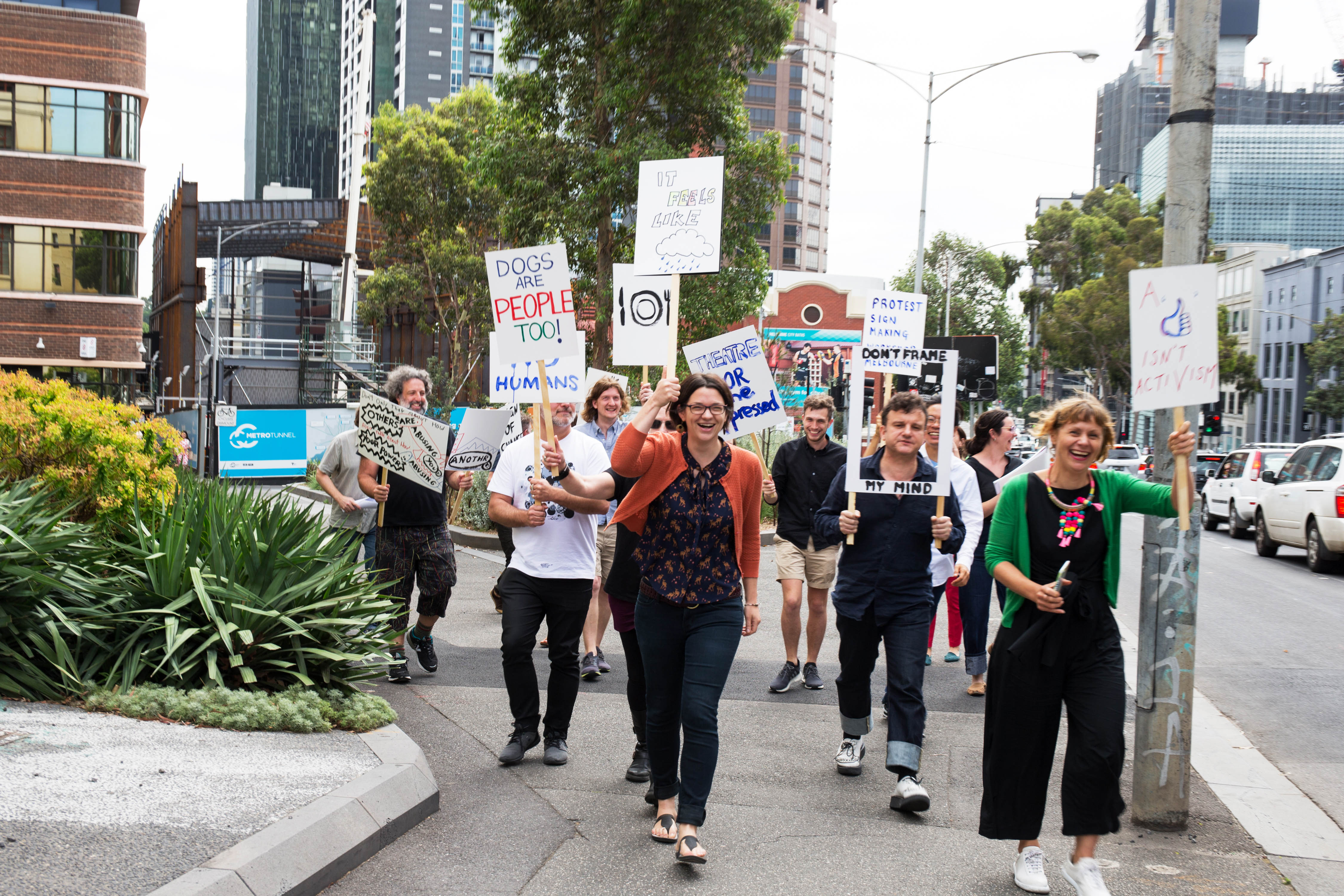
How can playful resistance as a tactic, strategy, mode of inquiry and creative, critical practice be used to intervene on hybrid reality? Exploring creative methods, theories and practices around what it means to think about the “playful” and “resistance” in an age of big data, AI and automation. The project was designed to create new ways of thinking about play and resistance. As real-world issues don’t happen in a discipline — it is important to do interdisciplinary research.
If you would like to get involved with this project, fill out the form below or reach out to project leaders via the contact info provided alongside each bio.
People
Larissa Hjorth
Distinguished Professor and Director, Design and Creative Practice
School: Enabling Capability Platforms
Larissa Hjorth is a digital ethnographer, artist, Distinguished Professor and director of the Design & Creative Practice ECP platform at RMIT University. With Professor Heather Horst, she co-founded the Digital Ethnography Research Centre (DERC). Previously, Hjorth was Deputy Dean, Research & Innovation, in the School of Media & Communication (2013−2016). Hjorth served on the inaugural Australian Research Council (ARC) Engagement & Impact Pilot study assessment panel for humanities and creative practice.
Hjorth studies the socio-cultural dimensions of mobile media and play practices in the Asia-Pacific region with an emphasis on interdisciplinary, collaborative and cross-cultural approaches. She has published a dozen co-authored books, edited over a dozen Handbooks/Companions and has over 40 journal articles.
More recently, Hjorth’s work has become concerned with how we can bring creative, social and design solutions to the growing ageing populations and, in turn, how we might consider scenarios of what it means to die well. She is also studying how our “more-than-human” companions can teach us about new media in everyday life. Hjorth’s last book, Haunting Hands (Oxford Uni Press) looked at how mobile media is being deployed in situations of grief and trauma, her previous book explored how art practice can teach us new acumen into the climate change debate.
Hjorth’s books include Haunting Hands (with Cumiskey 2017), Screen Ecologies (with Pink, Sharp & Williams 2016), Digital Ethnography (Pink et al. 2016) Mobile Media in the Asia-Pacific (2009), Games & Gaming (2010), Online@AsiaPacific (with Arnold 2013), Understanding Social Media (with Hinton 2013), and Gaming in Locative, Social and Mobile Media (with Richardson 2014).
Social Play Tool Kit
Encouraging social play and games literacies in the classroom.
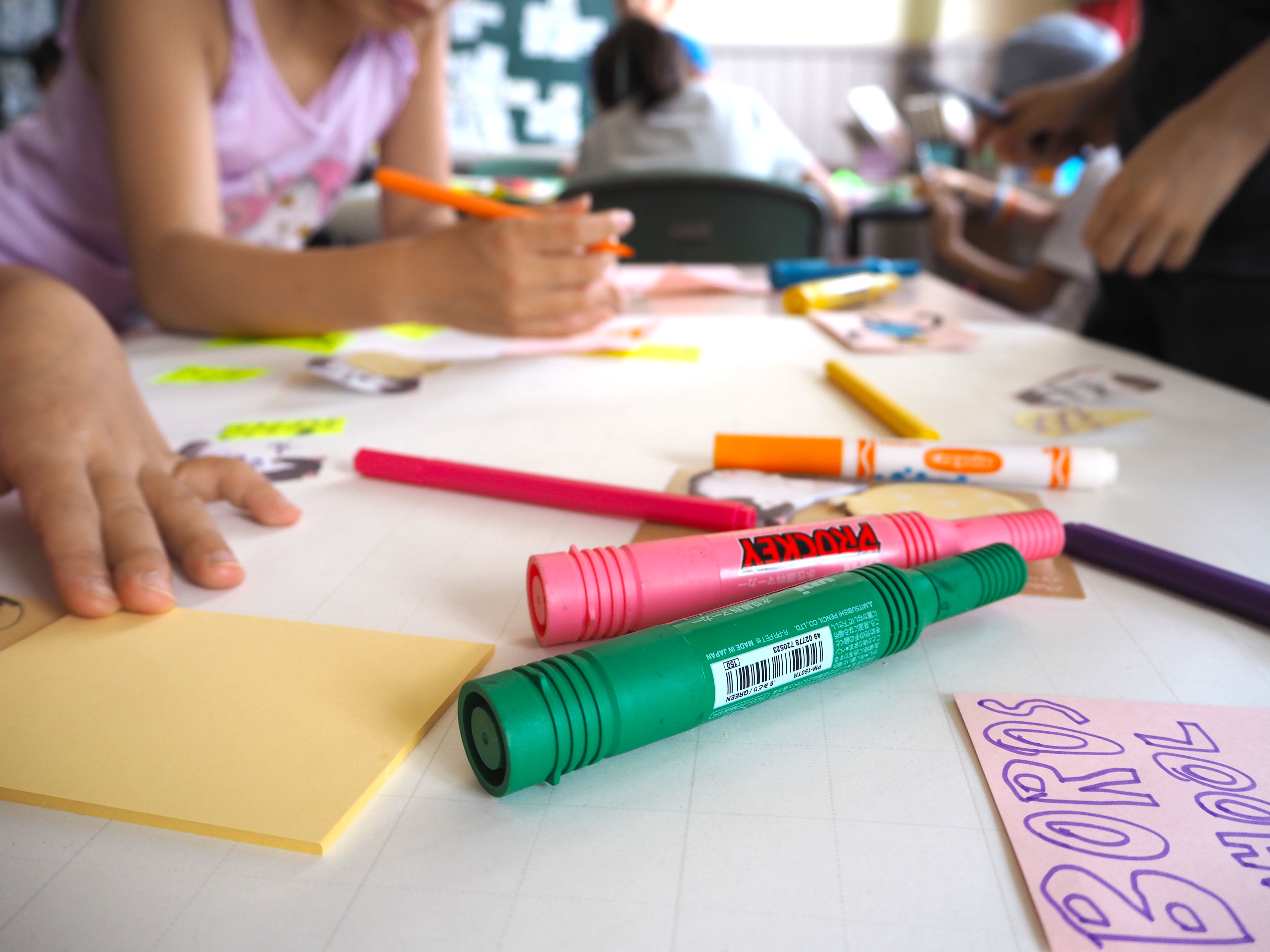
Play is a source of culture, a form of expression, and a creative way of engaging with the world. It is a crucial human ability for adaptation and expression.
In collaboration with our research partners and young people, we have developed a Social Play Tool Kit that encourages social play and game literacies in the classroom. Exploring socially-engaged gameplay and creativity across digital and material contexts, these tools are freely downloadable PDF’s for use in a variety of Primary School age learning environments.
INTRODUCTION TO THE SOCIAL PLAY PROJECT
If you would like to get involved with this project, fill out the form below or reach out to project leaders via the contact info provided alongside each bio.
People
Larissa Hjorth
Distinguished Professor and Director, Design and Creative Practice
School: Enabling Capability Platforms
Larissa Hjorth is a digital ethnographer, artist, Distinguished Professor and director of the Design & Creative Practice ECP platform at RMIT University. With Professor Heather Horst, she co-founded the Digital Ethnography Research Centre (DERC). Previously, Hjorth was Deputy Dean, Research & Innovation, in the School of Media & Communication (2013−2016). Hjorth served on the inaugural Australian Research Council (ARC) Engagement & Impact Pilot study assessment panel for humanities and creative practice.
Hjorth studies the socio-cultural dimensions of mobile media and play practices in the Asia-Pacific region with an emphasis on interdisciplinary, collaborative and cross-cultural approaches. She has published a dozen co-authored books, edited over a dozen Handbooks/Companions and has over 40 journal articles.
More recently, Hjorth’s work has become concerned with how we can bring creative, social and design solutions to the growing ageing populations and, in turn, how we might consider scenarios of what it means to die well. She is also studying how our “more-than-human” companions can teach us about new media in everyday life. Hjorth’s last book, Haunting Hands (Oxford Uni Press) looked at how mobile media is being deployed in situations of grief and trauma, her previous book explored how art practice can teach us new acumen into the climate change debate.
Hjorth’s books include Haunting Hands (with Cumiskey 2017), Screen Ecologies (with Pink, Sharp & Williams 2016), Digital Ethnography (Pink et al. 2016) Mobile Media in the Asia-Pacific (2009), Games & Gaming (2010), Online@AsiaPacific (with Arnold 2013), Understanding Social Media (with Hinton 2013), and Gaming in Locative, Social and Mobile Media (with Richardson 2014).
News and updates
EFI Conference 2018
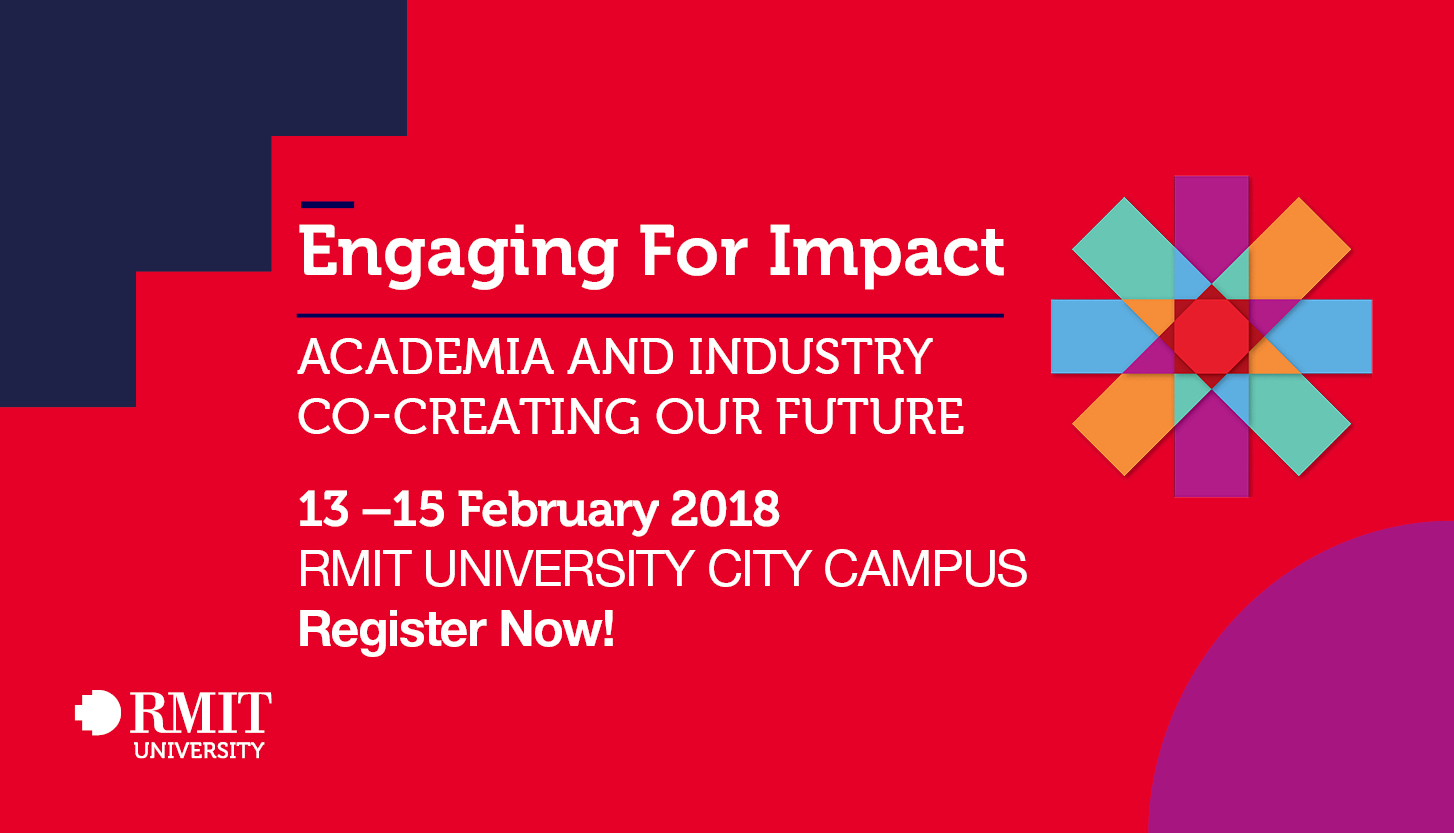
At Engaging for Impact 2018 Conference, RMIT’s eight Enabling Capability Platforms will share their knowledge and demonstrate how their expertise can address the world’s most critical issues. The Social Change ECP and Design and Creative Practice ECP, along with Biomed ECP, have curated The Future of Care stream. Read more
HDR HIGHLIGHT: Caitlin McGrane
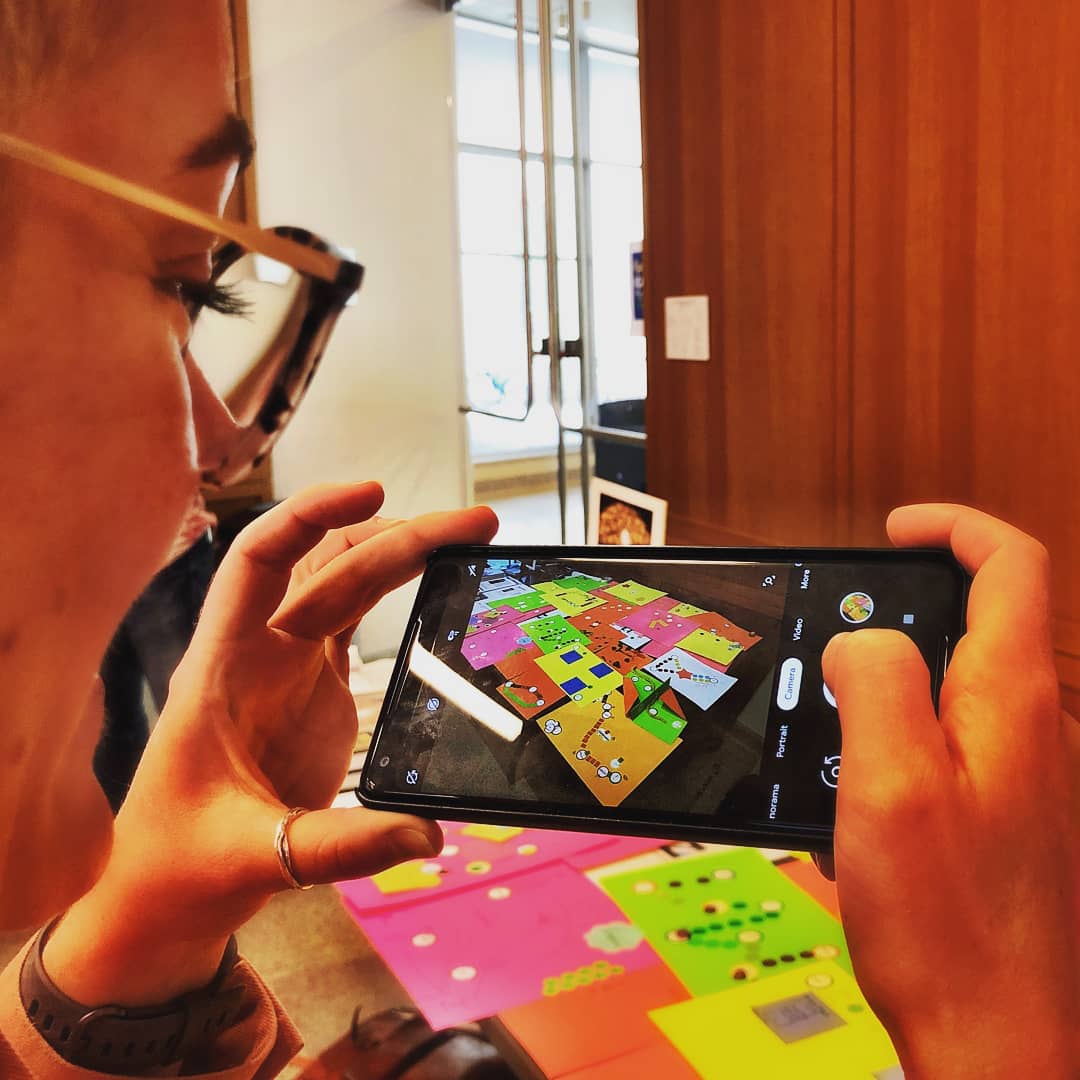
Caitlin McGrane
PhD candidate in the Digital Ethnography Research Centre Read more
People

After graduating from Oxford University and the Royal College of Art with an MFA in Sculpture, Kit Wise received the Wingate Rome Scholarship in Fine Art in 1999, to study at the British School at Rome. He moved to Australia in 2002 and completed his PhD at Monash University in 2012.
Wise has held senior educational leadership and leadership and governance roles since 2008. He is a Board Member for Deans and Directors of Creative Arts (DDCA) and Deputy Chair of the Executive Council of the Australian Council of University Art and Design Schools (ACUADS).
He is Professor of Fine Art and Dean of the School of Art at the RMIT University; and an Adjunct Professor at Monash University and the University of Tasmania. He is represented by Sarah Scout Presents, Melbourne and continues to practice as an artist, art writer and curator.

Dr Anne M. Harris, PhD is an Associate Professor and Vice Chancellor’s Principal Research Fellow at RMIT University, and an Australian Research Council Future Fellow (2017 – 2021) studying intercultural creativity. Anne is an Honorary Research Fellow at University of Nottingham (UK) and an Adjunct Professor at Monash University (Australia).
Their research is in the areas of gender, creativity, diversity, performance and emerging digital ethnographies. Anne is a native New Yorker and has worked professionally as a playwright, teaching artist and journalist in the USA and Australia. They have authored or co-authored over 60 articles and 13 books on creativity, arts, and non-dominant culture formations, the latest being Queering Families/Schooling Publics: Keywords (with Stacy Holman Jones, Sandra Faulkner, and Eloise Brook, Routledge 2017). Anne is the creator and series editor of the Palgrave book series Creativity, Education and the Arts, and recently completed an Australian Research Council DECRA on the commodification of creativity.
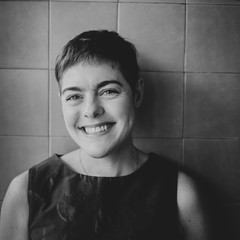
Caitlin McGrane is a feminist researcher and activist. Her doctoral research investigates how women’s feelings about their smartphone uses and practices can help challenge normative and misogynistic notions of women’s communications. She leads Gender Equity Victoria’s (GEN VIC) ‘Enhancing Online Safety for Women’ project advocating for better support and conditions for women working in media. In 2018 – 2019 she worked with GEN VIC to design a toolkit and a series of videos encouraging prosocial bystander actions on social media. She has worked on projects with the Victorian Trades Hall Council Women’s Team building an online resource to supplement their Gender-Based Violence in the Workplace training package. Her previous research has explored how witnessing anti-feminist harassment can negatively affect individuals’ willingness to publicly identify as feminist and participate in online spaces.
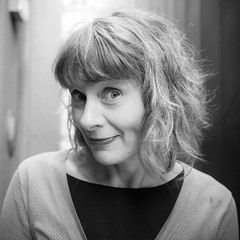
Larissa Hjorth is a digital ethnographer, artist, Distinguished Professor and director of the Design & Creative Practice ECP platform at RMIT University. With Professor Heather Horst, she co-founded the Digital Ethnography Research Centre (DERC). Previously, Hjorth was Deputy Dean, Research & Innovation, in the School of Media & Communication (2013−2016). Hjorth served on the inaugural Australian Research Council (ARC) Engagement & Impact Pilot study assessment panel for humanities and creative practice.
Hjorth studies the socio-cultural dimensions of mobile media and play practices in the Asia-Pacific region with an emphasis on interdisciplinary, collaborative and cross-cultural approaches. She has published a dozen co-authored books, edited over a dozen Handbooks/Companions and has over 40 journal articles.
More recently, Hjorth’s work has become concerned with how we can bring creative, social and design solutions to the growing ageing populations and, in turn, how we might consider scenarios of what it means to die well. She is also studying how our “more-than-human” companions can teach us about new media in everyday life. Hjorth’s last book, Haunting Hands (Oxford Uni Press) looked at how mobile media is being deployed in situations of grief and trauma, her previous book explored how art practice can teach us new acumen into the climate change debate.
Hjorth’s books include Haunting Hands (with Cumiskey 2017), Screen Ecologies (with Pink, Sharp & Williams 2016), Digital Ethnography (Pink et al. 2016) Mobile Media in the Asia-Pacific (2009), Games & Gaming (2010), Online@AsiaPacific (with Arnold 2013), Understanding Social Media (with Hinton 2013), and Gaming in Locative, Social and Mobile Media (with Richardson 2014).

Dr Julienne van Loon is a Vice Chancellor’s Senior Research Fellow with non/fictionLab, and a leading Australian novelist and essayist. Her first novel, Road Story, won The Australian/Vogel’s award in 2005 and was shortlisted for the WA Premier’s Award for Fiction and the Commonwealth Writers’ Prize Best First Book Award (Asia and Pacific). She has held residencies at various international arts organisations and universities, including the University of Iowa, where she was sponsored by the Paul and Hauling Engle Fund to take part in the International Writing Program in 2017. van Loon co-edits the leading scholarly Creative Writing journal TEXT, and is a peer-assessor for the Australia Council for the Arts. Her forthcoming essay collection, The Thinking Woman, includes interviews with key women thinkers from the Australia, Europe and the United States. Her scholarly research interests include the role of play in research and creative practice.
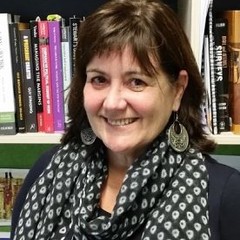
Dr Fiona Macdonald is a Vice-Chancellor’s Senior Research Fellow in the School of Management. Fiona’s research focuses on three interconnected themes: the changing nature of work and employment relationships; regulating for decent work and gender equality; and the political economy of work. The empirical focus of Fiona’s current research on the social care workforce also brings in her long-standing interest in social policy and welfare systems.
In 2016 Fiona was awarded an Australian Research Council Discovery Early Career Researcher Award to examine the workforce challenges of Australia’s new National Disability Insurance Scheme (NDIS). Her research has strong policy relevance and she works closely with industry as well as with national and international networks of employment and care scholars. In 2017 she received the RMIT Vice-Chancellor’s Award for Research impact – Early Career Researcher. Fiona is a member of the Editorial Advisory Board of the recently established International Journal of Care and Caring.
Helen Rayment is RMIT Gallery’s Acting Director and Senior Exhibition Coordinator. She is an experienced arts administrator and curator with a demonstrated history of working across the art museum sector and in higher education. She has a Master of Arts in Visual Art from Monash University. In 2018 she was awarded a professional development grant by the Australia Council to further her significant work in Asia.
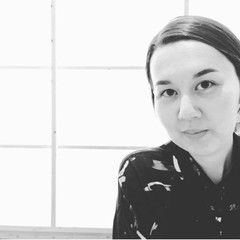
Jacina Leong is an artist-curator and PhD candidate in the School of Media and Communications, RMIT. Her research explores critical-creative and careful curatorial approaches to social innovation practices by museums and galleries.
Over the past decade, she has worked in hybrid new media spaces, universities, national and international festivals, regional museums and galleries, libraries and schools — to vision and deliver a diverse range of trans-disciplinary engagement programs, via highly collaborative, experimental and site-responsive processes. Most recently, Jacina was curator for Robotronica, project lead and founding member of the Guerrilla Knowledge Unit, guest facilitator of the Future Innovators Summit (Ars Electronica Tokyo Initiative), and co-curator of the provocation, Curating In The Age of Automation (RMIT & Ritsumeikan University, Kyoto).
From 2012 to 2017, Jacina worked at The Cube (QUT), establishing the inaugural STEAM engagement program for school and university students, educators and pre-service teachers. This program involved key collaborations with local, national and international organisations including Ars Electronica, LEGO Education, and Brisbane City Council. She has also worked in public program development at the Ipswich Art Gallery, collaborative learning strategy in universities, gallery management at Jan Murphy Gallery, and was advisor to the inaugural Make Nice at VIVID Festival.

Dr. Jan Schoormans (1956) is a Professor of Consumer Behaviour at the Faculty of Industrial Design Engineering, Delft University of Technology, Delft, the Netherlands. His research focuses on consumer preferences and behavior towards (the design of) new products. He has published on these topics in marketing journals like the International Journal of Research in Marketing, Psychology and Marketing, the Journal of Product Innovation Management, in psychological journals like Perception and the British Journal of Psychology, in engineering journals like Applied Energy, Journal of Cleaner Production, and in design journals like Design Studies, Journal of Engineering Design and the Design Journal.

Janneke Blijlevens is a Senior Lecturer in Design Thinking and Experimental Methods within the Marketing Discipline. With a Masters in Psychology, a PhD in consumer behaviour and design, and work experience in both design and business schools her research is truly interdisciplinary. Janneke uses her ability to understand different ways of thinking to design innovative solutions to complex societal and business problems. Her approach uses behavioural insights obtained in both qualitative and quantitative research to affect positive behaviour change in society. Her research covers areas such as product (design) perception and evaluation by consumers, the social roles that products can play to consumers, how to design products for social change, and psychological factors influencing the adoption of highly innovative products by consumers. She has published in top-tier academic journals such as Psychology & Marketing, International Journal of Design, Acta Psychologica, British Journal of Psychology, Journal of Psychology in Aesthetics, Creativity, and Arts, and Journal of Design, Business and Society. The project ‘Sans Forgetica, a font to remember (sansforgetica.rmit)’ gained world-wide acclaim.

Joanne Peryman (Laban) is a Lecturer in Economics. She holds a PhD in Economics from the University of Exeter, a Masters in Behavioural Economics from the University of Nottingham, and a BCom (Hons) in Economics from the University of Canterbury. Using mainly experimental methods, Jo’s research focuses on cultural differences in decision making, especially in situations involving uncertainty or risk. She has presented the results from this work at conferences in the UK, The Netherlands, and China. Jo is also keen to apply behavioural insights to policy. During her PhD she completed an internship with a UK Government Department, where she applied ideas from behavioural economics to real-life problems. Her work has attracted funding from the UK’s Economic and Social Research Council, as well as numerous small grants from the University of Exeter’s Behaviour, Decisions and Markets Research Centre.

Shelley is the Director of the Business and Human Rights Centre at RMIT University, Melbourne, Australia.
Shelley has undertaken empirical research on these topics in diverse countries, including Bulgaria, India, Indonesia, Australia and Cambodia, and has published widely based on her findings. Her high standing as a scholar has been recognised through the award a number of large multi-country grants, and she has undertaken collaborations with scholars from Cambridge University, Harvard University, Melbourne University and RMIT. Dr Marshall’s long term partnerships with the technical arm of the International Labour Organisation, Oxfam Australia and CORE UK have enabled her to produce research of a highly applied nature, which has had a strong policy influence and provided meaningful lessons for business and other relevant organisations. Likewise, Shelley’s leadership on the Steering Committee of the Australian Corporate Accountability Network has provided opportunities to influence Business and Human Rights policy in Australia.
Dr Marshall holds a Bachelors of Arts with a double major in Social Theory and Political Science and a Bachelor of Law from the University of Melbourne. She studied a Masters of Science in Development Studies at the London School of Economics and Political Science, where the focus was on economic policy. In 2015, she was awarded a Doctor of Philosophy in Regulation Justice and Diplomacy which she undertook at the RegNet School of Regulation and Global Governance, Australian National University under the supervision of Peter Drahos, Valerie Braithwaite and John Braitwaite. Dr Marshall is a Vice Chancellor’s Senior Research Fellow at RMIT University and an Australian Research Council DECRA Research Fellow.
